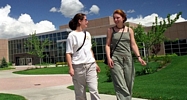|
|
 Acne (1,500) Acne (1,500)
 Addictions (1,500) Addictions (1,500)
 Advice (1,500) Advice (1,500)
 Allergies (1,092) Allergies (1,092)
 Alternative Medicine (1,500) Alternative Medicine (1,500)
 Anti Aging (1,500) Anti Aging (1,500)
 Breakup (1,500) Breakup (1,500)
 Cancer (1,499) Cancer (1,499)
 Dental Care (1,500) Dental Care (1,500)
 Disabilities (1,500) Disabilities (1,500)
 Divorce (1,500) Divorce (1,500)
 Elderly Care (1,498) Elderly Care (1,498)
 Goal Setting (1,500) Goal Setting (1,500)
 Hair Loss (1,500) Hair Loss (1,500)
 Health and Safety (1,497) Health and Safety (1,497)
 Hearing (1,500) Hearing (1,500)
 Law of Attraction (1,499) Law of Attraction (1,499)
 Marriage (1,500) Marriage (1,500)
 Medicine (1,497) Medicine (1,497)
 Meditation (1,499) Meditation (1,499)
 Men's Health (1,500) Men's Health (1,500)
 Mental Health (1,500) Mental Health (1,500)
 Motivational (1,500) Motivational (1,500)
 Nutrition (1,495) Nutrition (1,495)
 Personal Injury (1,499) Personal Injury (1,499)
 Plastic Surgeries (1,500) Plastic Surgeries (1,500)
 Pregnancy (1,496) Pregnancy (1,496)
 Psychology (1,500) Psychology (1,500)
 Public Speaking (1,500) Public Speaking (1,500)
 Quit Smoking (1,500) Quit Smoking (1,500)
 Religion (1,499) Religion (1,499)
 Self Help (1,500) Self Help (1,500)
 Skin Care (1,500) Skin Care (1,500)
 Sleep (1,500) Sleep (1,500)
 Stress Management (1,500) Stress Management (1,500)
 Teenagers (1,492) Teenagers (1,492)
 Time Management (1,500) Time Management (1,500)
 Weddings (1,500) Weddings (1,500)
 Wellness (1,500) Wellness (1,500)
 Women's Health (1,500) Women's Health (1,500)
 Women's Issues (1,500) Women's Issues (1,500)
|
Alvin R. Mahrer, Ph.D of the University of Ottowa, developed experiential psychotherapy in order to free people from the human tendency to close the doors of their minds on those experiences to which they attach powerful negative feelings. Experiential psychotherapy is not another method of problem resolution or reduction: it actually calls patients to open the emotional doors that they previously avoided.
The therapist's initial goal is to connect empathically through expressing understanding of the full extent of the patient's feelings. Experiential psychotherapists encourage patients to relive those experiences that elicit their stongest emotions, because these experiences and emotions are their means for connecting to their deepest potentials.
As patients relive these experiences, therapists guide the ways in which they emotionally and mentally compute (or translate or attach meanings to) their experiences and emotions. Therapists use relevant interventions such as the two-chair technique — also known as theempty-chair technique or Gestalt Therapy— in which a patient moves back and forth between two chairs, with each chair being the seat of a specific role: the two chairs might represent parent and child, or the patient and his inner critical voice; the patient plays out each role as the roles interact with one another.
According to Mahrer, experiential psychotherapy is best viewed as a useful model, and not as a true theory. It encompasses no set view of human nature: humans are seen as assortments of interacting potentials (potentials to experience various events and emotions), with some potentials interacting positively and some negatively.
Experiential psychotherapy first focuses on integration, in which people learn to improve the quality of their interactions between potential, and then moves toward actualization, in which people start arranging their experiences to correspond to their deeper potentials.
As mentioned above, it's the experiences that stimulate the most powerful emotional charge in an individual, which also forges that individual's connection with his or her deeper potentials. Regarding the arrangement of experiences in experiential psychotherapy, it's believed that each person interacts with, and arranges, his or her experiences in such a way that the meanings drawn from them are the ones that are most essential to that individual.
Furthermore, individuals actually transform their personal lives into arenas in which they can have more of the experiences that they find most essential. Viewed through this lens, experiential psychotherapy is a means of helping individuals become more conscious of how they are arranging their lives, so that a desire to realize their deepest potentials becomes the basis for how they organize their lives, and how they choose to interpret their experiences.
The Client-Centered and Experiential Psychotherapies certificate program at Argosy University provides students with coursework and training, and also with supportive communities, to help them fine tune their capacities for sustaining environments that nurture client-centered relationships with diverse people from a wide array of experiential backgrounds — relationships that will be relevant to each client in the development of his or her deeper potentials.
|
|
|



